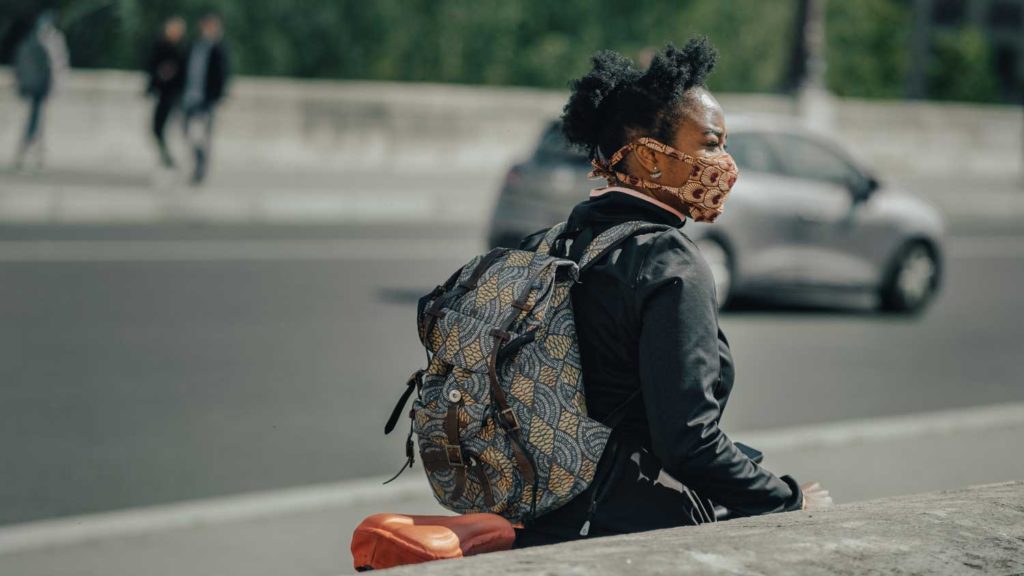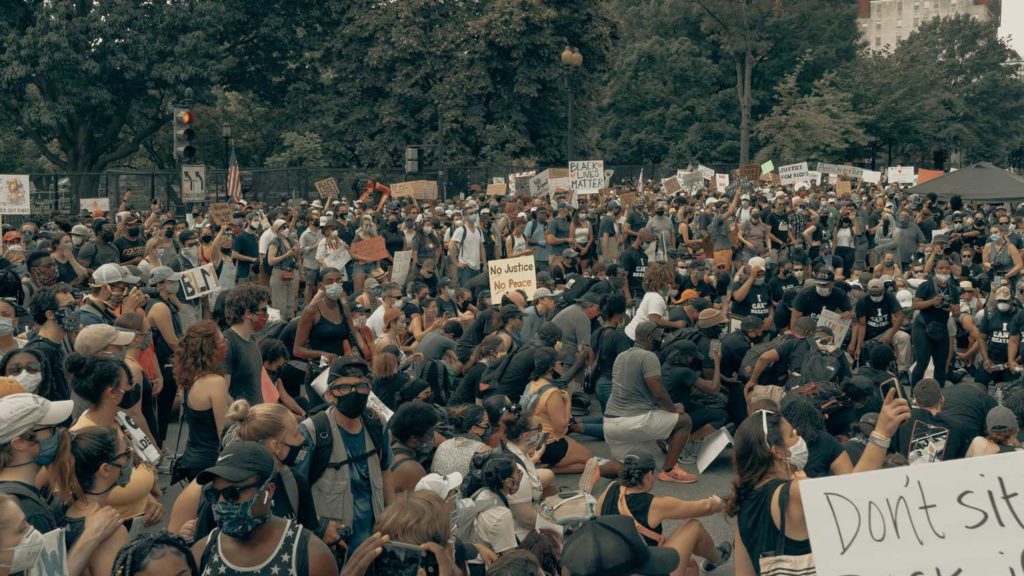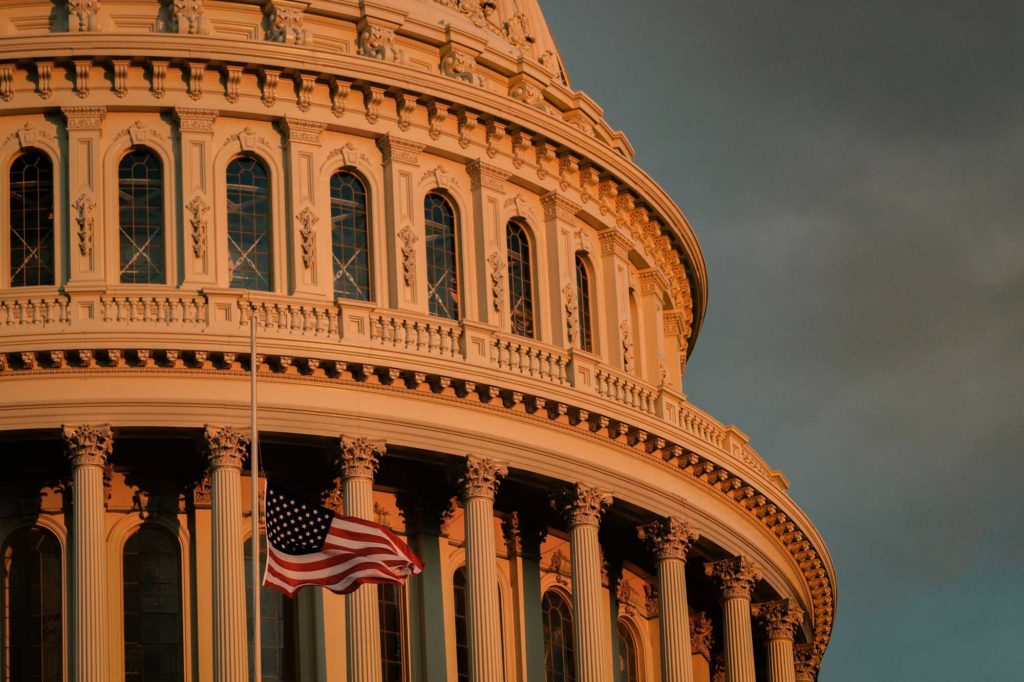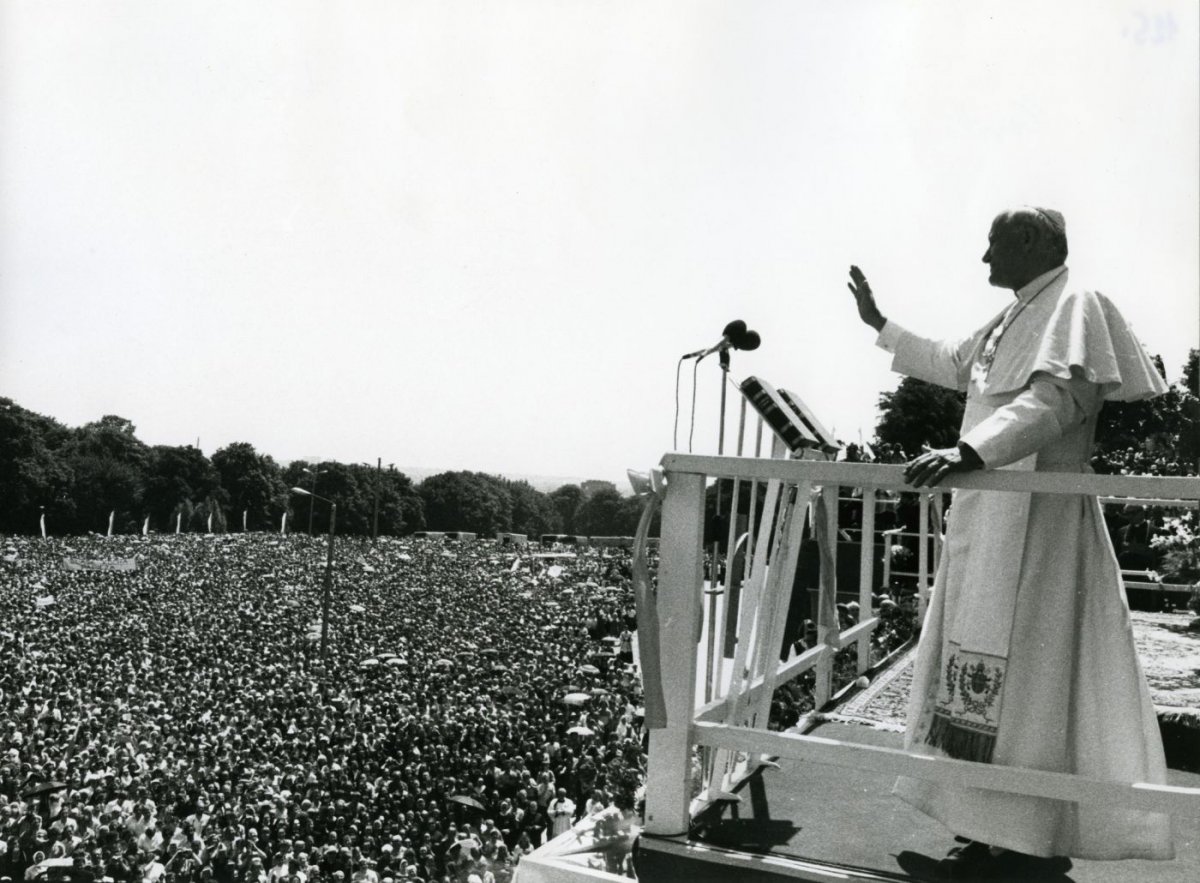It has been exactly one hundred days since my ordinary life ceased to exist and I began to navigate the landscape of a global pandemic. Although this seems like a natural point for a moral philosopher such as myself to pause and take stock, I find myself fighting intellectual vertigo instead. Given the dramatic nature and dizzying pace of events over the past two weeks, and the sudden shift of focus from fighting the natural evil of the COVID-19 virus to fighting the twin social evils of systemic racism and police brutality, I feel unmoored. The crisis accelerates and changes in ways that outstrip my capacity for analysis.
As my own philosophical work focuses on the nature of right practical reason and how it depends on virtues of character, our pervasive and persistent failures in this regard stick out.
On the one hand, there is the widely shared tendency to engage in what I call motivated partisan thinking. Such thought subordinates concern for truth to political ends, leaving us with a distorted vision of reality built on arguments made in bad faith. On the other hand, it seems safe to say that we—especially our political leaders, government experts, and members of the professional-managerial class—have lost sight of the distinction between practical wisdom or prudence and mere expertise, with disastrous results.
The problem of how to reason well in a crisis is not only political but also deeply personal. We have all experienced the anxiety and self-doubt that comes from the complete disruption of our normal, everyday lives. One way to address this is simply to remember, as best we can, how we got here.
What Just Happened?
I can still vividly recall early March when I began to hear from fellow academics in Italy about the virus spreading there like a wildfire. A close friend in Rome was adamant that I needed to pull my kids out of school and stop all social engagements. But the urgency of his advice was completely out of step with my own social environment. I was still teaching, multiple universities were expecting me to come to their campuses to give lectures, and the public schools remained silent about COVID-19. Should I cast aside all social expectations and take my friend’s draconian advice? Was he alone practically wise?
When we make practical decisions, we always (at least implicitly) bring our particular circumstances under our general conception of how to live well. We do this without noticing it, because our practical reasoning draws on our stable habits—of mind and character, but just as importantly, of our social customs and routine. I don’t have to deliberate about my morning espresso, how or when to greet strangers, or whether to get my kids ready for school. But in novel circumstances, our habits do not necessarily serve us well. To compound the trouble, we find ourselves with no exemplars of right reason to imitate and no inductive reservoir of past experiences to draw from. In my own case, otherwise normal decisions felt suddenly fraught, my deliberations tinged with self-doubt.
Soon enough, decisions were being made for us, in the name of public health. Classes were canceled and then moved online. The older children began to be homeschooled—and what a wealth of drama is buried in that use of the passive voice. Our city went into lockdown, and then our state quickly followed suit. Our family understood that we would need to make great sacrifices for the sake of public health: no Masses, no gathering with friends or family, no trips to the park, no sports or public events We adjusted our reasoning to match our new reality—we supported the lockdowns. In fact, we supported wearing masks long before the experts came around to common sense about them. Health and safety became our foremost ends, followed by the well-being of the children, with our own work coming dead last. Our world constricted, and with it, so did the space and shape of our practical reflection.

As far as lockdowns went, we were privileged. South Carolina was far less draconian than other states, for one thing, but we are also a large and cohesive family who enjoyed our newfound time together: all eight of us. My husband and I have secure jobs, and our home has ample outdoor space. Other Americans were not so lucky. Many small-business owners watched in horror as a lifetime’s work dissolved in a matter of weeks. Tens of millions were losing their jobs and, with them, their health insurance, while those in the service economy were risking their lives so that the rest of us could keep ourselves comfortable, fed, and entertained at home. Many could not visit dying loved ones in the hospital or bury their dead. Parents of disabled children could not get them their therapies, while children of elderly parents struggled to deal with problems that fell below the threshold of “necessary” care. For many, the lockdown was a full-blown mental-health crisis. Yet any complaints or small attempts at relief—such as family drives or walks on nature trails—were widely condemned and punished. My own neighborhood had its own self-appointed scold who drove around in a golf cart threatening to call the police on those not sufficiently socially distanced. Solidarity was in short supply when it was needed most.
Lockdown Backlash
Anti-lockdown animus was swift and largely from Red State America. Calls to reopen the country for business became louder as the lockdown continued. Scattered protests of the lockdown began to emerge across the country. These protests were largely white, made up of people from communities who were suffering tremendous economic losses without (at that time) experiencing significant spread of the COVID-19 virus. They were mostly small and peaceful—despite some obvious outliers, such as the notorious protest in Lansing, Michigan. Here in my own city, many of the protestors were small-business owners who felt their voices were not being heard.
In general, Blue-Staters largely favored expert-recommended lockdowns and treated public opposition to them with contempt. Public health experts were some of the loudest in their condemnation of these acts of civil disobedience as irresponsible, showing a cavalier disregard for the lives of others. Red-Staters, in insisting that the cure was worse than the disease, downplayed the risks of the COVID-19 virus and complained that the personal sacrifices that Americans were being asked to make were too costly. Many pointed out that there are other social factors that contribute to negative health outcomes, such as poverty, loneliness, social isolation, stress, anxiety, and depression, conditions that the lockdown was clearly exacerbating in great numbers. Their concerns were dismissed by our expert class.
The Murder and What Followed
This political dynamic continued until late May, when George Floyd, a black resident of Minneapolis, was senselessly and mercilessly killed by a white cop in broad daylight. As Floyd’s murder followed closely on the heels of the racially charged killing of Ahmaud Arbery in Georgia—whose apparent crime was jogging while black—and Breonna Taylor in Kentucky, long simmering racial tensions suddenly boiled over all across the country. People took to the streets in the tens of thousands, venting their legitimate anger and frustration and demanding the recognition that black lives matter, begging law-enforcement officers to stop killing black people. Several protests across the country descended into violence, looting, and the destruction of property, though most remained peaceful. The riots were complex, with many different groups participating for varied reasons; though most Americans both on left and right were able to distinguish the riots from the protests in their minds, some on both left and right, seemingly, could not, equating support for one with support for both. Despite widespread acts of police brutality against protestors, the protests not only persisted but also grew in size and number.
Almost overnight, the COVID-19 virus became a subsidiary plague, and concerns for it were taken to be a threat to concerns for racial justice. The response of public health experts underwent a stunning gestalt shift. It’s not just that public health experts were silent about the risks associated with these protests, whereas before they were quite vocal about them. In many instances they vocally downplayed them in order to endorse and encourage people to join the protest movement, and to do so as a matter of public health. That is to say, they used their considerable authority as public health experts to encourage acts of civil disobedience on a massive scale as effective public health measures in the midst of a deadly pandemic that disproportionately kills black people.
For example, in an open letter signed by thousands of experts that was circulated widely, it was claimed that “the way forward is not to suppress protests in the name of public health but to respond to protestors’ demands in the name of public health.” One might be forgiven for thinking that public health experts were now claiming that abolishing the police was an urgent matter of public health, since “white supremacy is a lethal public health issue” and therefore “our first statement must be one of unwavering support for those who would dismantle, uproot, or reform racist institutions.” Suddenly, our expert class affirmed that not only do social determinants matter, they matter far more than the obvious risks of further spreading a deadly plague for which we have no effective treatment or vaccine. Furthermore, the letter baldly states that public health experts were correct to oppose anti-lockdown protests and must support anti-racism protests. This amounts to public health experts weighing in, as health experts, on the political questions of who gets to exercise their free-speech rights during a pandemic and why.
What do we make of this? Is there nothing to their claims? Certainly, systemic racism is a social determinant that helps to explain some of the differential health outcomes within black populations here in the United States. I have discussed these racial disparities and their causes extensively in my medical-ethics classes, where we have analyzed some of the relevant literature together. As a philosopher teaching medical ethics to future health-care workers, I strive to help my students to see that their future patients are more than bodies or vectors of disease—they are human persons, with spiritual and social as well as physical needs; their social environment has a great impact on their prospects for health. Public health experts are correct to point out the social aspects of human health.

Still, the statements of the public health experts overstepped the mark by quite a lot, and for a very particular reason: What counts as an instance of white supremacy, what economic and political structures and institutions need to be “dismantled, uprooted, or reformed,” what acts of civil disobedience ought to be tolerated and which actively sanctioned by the state are well outside the sphere of epidemiological expertise. Experts are not political leaders, and they are not, in any formal way, called on to exercise political prudence, except inasmuch as we all are as citizens. And the questions of how to respond to the protests are philosophical and political questions. To address them requires political prudence. It is hubris of a high order for our expert class to pretend otherwise and to render sweeping judgments about which group should be afforded free-speech rights and why.
Expertise, Practical Reason, and Public Trust
As might be expected, Red-Staters responded to these statements with scorn, lambasting experts for blurring the lines between sound science and partisan politics. Some public health experts responded by saying that “science is an inherently political activity.” Such statements are not only false but deeply unwise, since they further erode the already fractured trust between many Americans and the expert class. Expertise is in fact a genuine good, and is essential to sound political decision-making: it is simply that it is not itself constitutive of that decision-making. Moreover, public health measures are only effective if there is trust in the experts who issue them, and that trust is undermined when it seems as though those experts’ guidelines are being applied in politically motivated ways.
However, just as unelected public health experts have no business deciding political questions, we must not reduce medical expertise to value-neutral scientific inquiry either. The truth is far more complicated.
The expert is someone who has a certain kind of education, training, and experience relative to a certain narrow domain of knowledge. She is typically credentialed to practice her expertise and is given authority relative to the domain in which her knowledge operates. Some forms of expertise are theoretical, which means their authority derives from their reputation for a certain domain of knowledge. If you have a question about the Civil War, for instance, you should consult a historian of nineteenth-century America who has spent her career trying to understand it.
But other kinds of expertise fall in the realm of art or practical skill, which concerns not mere knowledge but the ability to produce certain goods in accordance with associated techniques. A skill involves the possession of a unified body of practical knowledge and reasoning. Skill is an intellectual habit—a stable disposition that makes one ready to act in ways that are ordered to the realization of the end internal to it. If you need to have your pants taken in, you should not consult a fashion historian, but a tailor, since he has the habits of practical knowledge and reason necessary to do this well. He knows not just about sewing, but how to sew.
Medical expertise, broadly speaking, is also practical expertise. It concerns the realization of health, which is a human good. Doctors aim to understand the human body in order to bring about health in individual persons. This habitual knowledge is practical because it involves seeing how to realize a good. They know how to heal.
Epidemiologists aim to understand the factors that determine the presence or absence of disease and disorders, as well as how diseases and disorders affect society at large. They study populations rather than individuals, in order to guide effective public health policy with the goal of promoting, protecting, and preserving individual health within specified populations. An excellent epidemiologist has mastered the art of identifying, containing, and eradicating disease—not just as a matter of satisfying his curiosity but in order to restore health to a population.
In order to underscore these points about the sort of practical reasoning that defines expertise, let us consider two different sorts of mistakes an expert might make. The first is a failure of expertise, which is always a failure to apply to techniques necessary to attain the desired end that governs it. So, suppose an epidemiologist gets the rate of transmission of a virus wrong, because there were factors of transmission he failed to put into his model. He may be faulted for this, qua expert.
But now let us imagine an entirely different scenario. Imagine an epidemiologist who intentionally makes a faulty model because he thinks that humans are the real virus and nature must be protected from them. He wants to use his expertise not to bring about health but to spread disease. But here we do not fault him qua epidemiologist. (In fact, it would take epidemiological brilliance to fake a model that would be convincing enough to fool everyone.) Rather, we fault him as a human being. That is, what he has done isn’t a failure of expertise but a failure of prudence, or right practical reasoning about how to live a good human life. Our fanciful thought experiment demonstrates that prudence is not an expertise but a virtue. It is a disposition not to produce certain goods but to be good and live well in an unqualified sense.
The expert should always be wary of overstepping the bounds of his own expertise.
The expert should always be wary of overstepping the bounds of his own expertise. The Civil War historian might be passionately committed to promoting racial justice, but it would be hubris for him to think that his credentials make him qualified to lead anti-racist movements. To execute that work well, he would need a different sort of training and experience, which would create different habits of judgment in him. It is sometimes possible for one person to harbor these different sets of training and to be able to appropriately switch between these different habits of judgment. But it is quite difficult, and rather unusual, to be able to do both equally well and without letting the habits of mind of one discipline inappropriately overtake the habits of mind of the other. Similarly, the epidemiologist in his role as an epidemiologist should not pretend to have the expertise to weigh in on which of our social institutions needs to be dismantled, when, and why, or whether politicians should encourage or permit protests. This is a question of political prudence, which depends on political experience and a sound vision of what generally constitutes the good life for all citizens. Moreover, these are issues that deserve robust political debate, and need to be subject to democratic processes. Protest is part of that, as an exercise of free speech. It is an exercise of political prudence and authority, however, to make tough calls about when to limit that speech in the name of public health.
Political Prudence and the Common Good
So what is political prudence? It is not another form of expertise, but an intellectual virtue that enables a political leader to judge, in the particular, changing circumstances of life, what laws, orders, or policies will promote and protect this common good. That is to say, it is not a mere shift of topic, but a different kind of practical reasoning altogether, one that is directed to the common good of all citizens, and therefore dependent on the virtues of good character.
When I use the term “common good,” I do not mean to invoke the public goods often referenced by economists, which are non-rivalrous and non-excludable goods subject to the tragedy of the commons, like fresh air or clean water. Rather, I mean the common good in the sense one finds it in the Aristotelian philosophical tradition. Following Aquinas, we can say of the common good that it is common to our nature as human beings to seek and enjoy; that it is noncompetitive, which means it is not diminished in any way by others’ pursuit or enjoyment of it; and finally, that it is participatory, which means that it is a good that is such as to be brought about and enjoyed with others. I can enjoy a piece of birthday cake by myself; I cannot enjoy a birthday party by myself, because the “party” part is the pleasure in being with others I care about to celebrate the life of one of them.
For someone to possess political prudence, she must possess a correct vision of the good life that all citizens can participate in equally. She must not only know what sorts of generic goods constitute the common good, but she must also grasp how these goods are hierarchically arranged in a well-ordered human life. For part of wise political judgment is seeing how to prioritize different goods in various, changing circumstances. Obviously, health will be given an unusual priority during a plague, but our political leaders will need to weigh the good of health against competing goods, like economic stability and racial justice. A wise leader can hold more than one good in his mind at once, and act to promote the common good by balancing those generic goods, seeking to realize them all, as much as possible, in their time and in harmony with each other. Wise citizens can do this, according to their own roles in the polity, as well.
Talk of a robust vision of the common good sounds illiberal to some ears, but this is so only if we are confused about the relation between the general and the particular. At a high level of generality, there is widespread agreement about the goods of human life and how they ought to be generally ordered within a well-functioning society. Virtually everyone agrees generally that health is a basic human good that needs safeguarding and also that health is not the highest good we seek. In addition to shelter, food, and security, most people agree that humans have spiritual needs: we seek to find meaning and purpose in our lives and a connection with goods that transcend ourselves. We agree about the need for the pursuit of knowledge, for the dignity of work, of family and friends, recreation, art, play, and contemplation. Our political battles all tend to be at the level of particulars—what practices best instantiates these goods and what specific means will best realize them in just and equitable fashion. These political disagreements ought to be settled by democratic means and through various processes of democratic debate.

In order to know when and why to risk public health, a leader must make recourse to her general conception of the common good and apply it to the particular circumstances at hand. To do this is to step outside the proper bounds of mere expertise—medical or otherwise. A wise leader will rely on experts for sound advice and policy, but in the end the political decision must be made through an exercise of political prudence—especially when the circumstances call for swift and decisive action.
Political prudence, like all prudence, requires the virtues of good character, which develop over time and are the result of a very different form of education than any expertise. Cowardice, lack of self-discipline and patience, dishonesty, pride, greed, and other vices distort our ability to know what to seek and avoid in particular, changing circumstances of private and public life. Right now, above all else, we need our political leaders to have the courage to speak the truth about the reality of our current situation, regardless of how the truth affects their political prospects or their political goals generally The truth is, the virus has not ended; it’s accelerating, and it has no regard for justice. The truth is, systemic racism and other structural inequalities persist in this country and are heightened, and revealed, by this pandemic. And the truth is that tens of millions of Americans are suffering in myriad ways and want and need their voices to be heard. We need to seek political solutions to these stark realities. But we will need political wisdom as citizens, and we will need leaders with political wisdom, to address them. This wisdom will draw on expertise, but cannot and must not be reduced to it.
A crucial feature of prudence is foresight. Aquinas argues that the prudent man can grasp the future in light of both the present and the past, by a process of comparison. Of course, this takes experience and the ability to seek good counsel from others. Prudence includes the ability to foresee the likely effects of one’s actions (or inactions) and one’s policies.
Foresight and the Effects of Protests
We know the likely effects of gatherings that last for hours or even days, with a great deal of shouting and without any hope of social distancing, and that is further spread of a deadly virus. It is very difficult to directly measure cause and effect in this, of course, and the results of studies are still coming in. At this point, the picture isn’t clear. Accuracy and honesty in data collection, interpretation, and reporting are absolutely crucial.
Here in my own city of Columbia, South Carolina, COVID-19 cases are up 30 percent—a terrifying jump. Four of the principal organizers of the anti-racist protests have announced that they have now tested positive for the COVID-19 virus and are encouraging the many thousands who protested over the past two weeks to get tested as well.
This result is entirely predictable and very worrying. For, although only 27 percent of South Carolinians are black, they make up 36 percent of the current confirmed COVID-19 cases and 46 percent of its confirmed fatalities. These terrible facts put considerable pressure against the experts’ claims that mass protests are a critical tool for increasing public health within black populations in this particular moment of intense vulnerability.
We do not know, yet, with certainty, how the protests have or will affect the spread of the virus. We can hope that they do not increase spread at all. But that seems unlikely. That is the fierce reality of a virus that does not care about the reason you are gathering, and that reality must be faced. It is the role of experts to bring that reality before those politicians and citizens making their own prudential judgments, so that it can be fairly weighed; so that that evil can be balanced with other goods that may be accomplished. The Black Lives Matter protests were a legitimate response to a horrific national tragedy, and one that I support. They have brought about some positive changes in our country already. But the question of whether to protest is always a matter of prudence, both personal and political. It is not, and should not be, a matter for the experts to decide.
Our crisis has exposed our structural injustices, but it has also exposed the lack of good character of much of our political leadership. Imagine if we had leaders who could unite us around a shared vision of the common good.
In this moment of unrest, uncertainty, and suffering, we need humility, compassion, and solidarity. We need to recognize that our fates are tied. Our crisis has exposed our structural injustices, but it has also exposed the lack of good character of much of our political leadership. Imagine if we had leaders who could unite us around a shared vision of the common good in this moment of division, anxiety, and fear; who could call us to grow in solidarity rather than give in to our darker impulses to scorn and judge; who could call us to sacrifice humbly for the sake of one another, to protect and look after each other. Imagine if they could set aside their partisan differences in order to work together for the common good. I think we are all painfully aware that we are all too often lacking such leaders when we need them the most. Prudence has been in short supply.
During the first month of lockdown, when my insomnia and anxiety were peaking, I rewatched the Steven Soderberg film Contagion. The film tells the story of a deadly pandemic that kills millions of Americans, spread by respiratory droplets, brought to the United States from Asia. The heroes of the film are the experts and diligent researchers who heroically direct policy and fashion a vaccine in record time. Politicians are noticeably absent from the narrative. There are eerie similarities in the film to our current moment, but its central message—that expertise and scientific rationalism will save us—seems wildly out of touch with our present reality.
The truth is that experts will not save us—our problems are much bigger and deeper than they are equipped to solve. We need wisdom. The time to demand it, in our leaders and in ourselves, is long overdue.





